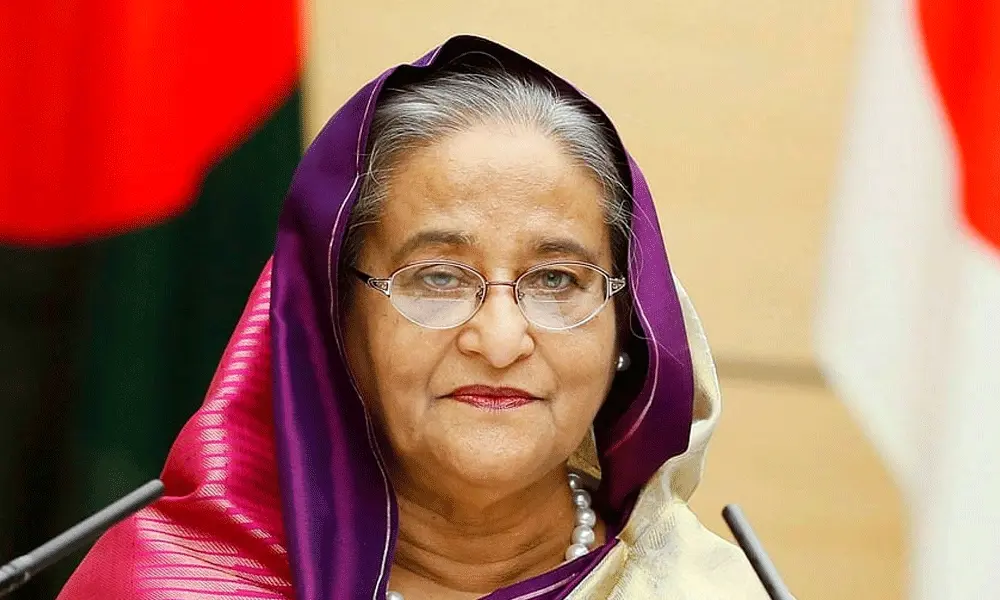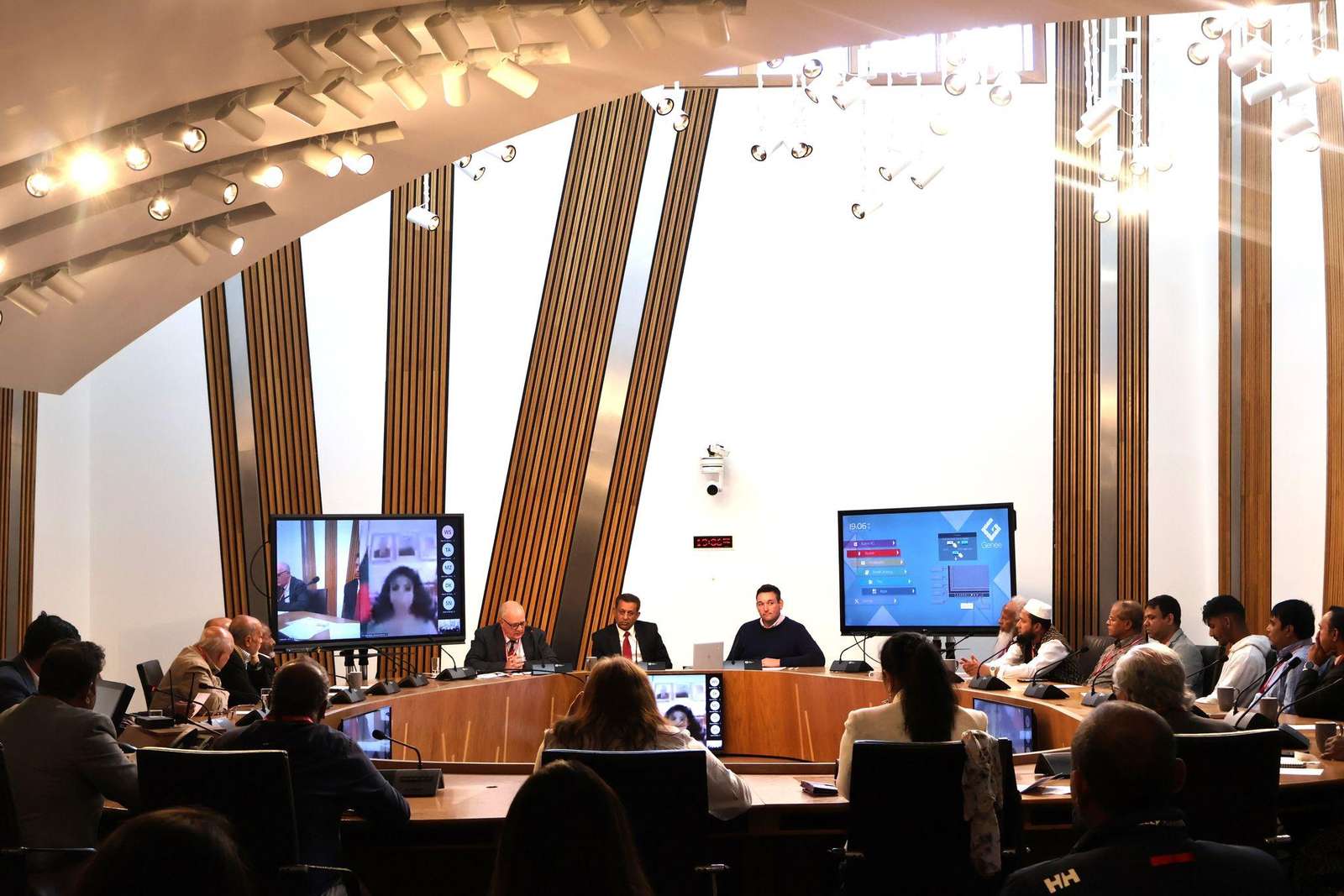Prime Minister Sheikh Hasina is poised to embark on a significant three-day state visit to China starting likely in the Second week of July at the invitation of Chinese Premier Li Qiang, sources in Dhaka and Beijing said.
This visit, announced by diplomatic sources in both Dhaka and Beijing, comes at a critical time amid ongoing global tensions such as the Russia-Ukraine conflict and the turmoil in the Middle East due to Israeli actions in Gaza.
According to a highly-placed Bangladeshi diplomat, this visit aims to deepen Bangladesh's ties with China, the world’s second-largest economy. In the context of these international conflicts, strengthening bilateral relationships becomes all the more crucial for both nations.
A political expert highlighted that political leaders from the USA, India, and EU countries have frequently expressed concerns over Bangladesh's growing dependence on China. Following the World Bank, Asian Development Bank, USA, and Japan, China has become a major source of loans for Bangladesh's development projects. Furthermore, Bangladesh’s defense cooperation with China remains a significant concern for India and Western countries.
During her visit, Prime Minister Sheikh Hasina and Chinese leaders are expected to engage in discussions covering a wide range of issues. These will include trade, investment, mid and long-term loans, Belt and Road Initiative (BRI) projects, various Chinese investments, the Rohingya crisis, and the civil war in Myanmar. Such comprehensive dialogue aims to address and bolster the multifaceted relationship between the two countries.
In addition to her stay in Beijing, Prime Minister Sheikh Hasina will also travel to Guangzhou and Schengen, accompanied by political and business leaders. After her engagements in Beijing, she will journey to Guangzhou and subsequently to Schengen by bullet train, demonstrating a commitment to experiencing China's advancements in transportation and urban development firsthand.
Sources indicate that Bangladesh may seek a special economic package from China to mitigate the macroeconomic pressures facing the country. The civil war in neighboring Myanmar and the influx of 1.1 million Rohingya refugees into Bangladesh have severely impacted the country’s social fabric.
Consequently, Dhaka is expected to request Beijing's active initiatives in resolving this crisis. Additionally, Bangladesh will address the significant trade imbalance with China, urging Chinese entrepreneurs to invest in promising sectors. Currently, China is Bangladesh’s largest trading partner. In the 2022-23 fiscal year, Bangladesh exported goods worth $610.14 million to China, while imports from China totaled $17,826.6 million, resulting in a trade deficit of over $19 billion.
In 2016, during President Xi's visit to Bangladesh, both nations signed a series of Memorandum of Understanding (MoUs) and agreements, promising $26 billion in BRI projects and $14 billion in joint ventures, amounting to a $40 billion package. BRI projects in Bangladesh have primarily focused on energy and transportation, with infrastructure investment needs projected to reach 1.5% of GDP by 2040. This substantial investment highlights the strategic importance of Bangladesh in China’s BRI plans and the mutual benefits both countries seek to achieve through these collaborations.
During this visit, Bangladesh is likely to request $5 billion in soft loans from China to ease the strain on its dollar reserves. These funds could be utilized for importing raw materials and providing budget support. Discussions regarding these loans began following China’s expressed interest. The Economic Relations Division (ERD) recently held an inter-ministerial meeting to evaluate the loans' pros and cons, ensuring that the financial terms align with Bangladesh’s economic needs and repayment capabilities.
China currently ranks fourth among the 32 countries and organizations lending to Bangladesh, with Chinese loans representing nearly 10% of the total loans received annually by Bangladesh. Over the last two years, this amount has exceeded $1 billion annually. Of the total loans provided by China, $3 billion has been granted in the last four years, indicating a growing financial relationship between the two nations.
To alleviate pressure on its depleting reserves, which stood at $19.95 billion as of April 30, Bangladesh Bank allowed the settlement of international trade in Chinese yuan in September 2022. This move aims to reduce reliance on the dollar, thereby diversifying the currency mix and mitigating exchange rate risks. This strategy is part of a broader effort to stabilize Bangladesh's economy amid global financial uncertainties.
Amid these developments, Chinese Ambassador in Dhaka, Yao Wen, underscored the significance of Prime Minister Sheikh Hasina’s visit for promoting trade, investment, and cultural exchange. This aligns with Bangladesh's Vision 2041 and the goal of realizing a "Smart Bangladesh." He emphasized that the early signing of a China-Bangladesh Free Trade Agreement (FTA) would usher in a new era of economic and trade cooperation, describing it as a transformative step for both countries.
The feasibility study report indicates that the FTA will reduce tariffs on Chinese goods imported into Bangladesh, potentially lowering import prices and alleviating inflation. This reduction in raw material costs could enhance the competitiveness of Bangladeshi products in the international market, supporting an increase in foreign exchange reserves. Furthermore, the FTA is expected to facilitate Chinese investment in Bangladesh, creating employment opportunities, promoting industrial upgrades, and diversifying exports.
Earlier this year, Bangladesh successfully held its general election, and the new government's top priority is stable economic development and graduating from the Least Developed Countries (LDC) status. In support of these goals, China aims to offer over CNY 36 billion (approximately $5 billion) as a trade facility, despite stringent conditions.
The repayment terms of Chinese loans, typically 10-15 years excluding the grace period, pose challenges, with high annual principal payments compared to loans from institutions like the World Bank. Zahid Hussain, former lead economist at the World Bank's Dhaka office, commented on China's efforts to bolster the yuan's reliability in global trade and the potential benefits of such loans, provided the conditions are favorable. He noted that while loans in yuan could reduce pressure on dollar reserves, the terms and conditions of these loans need to be carefully evaluated to ensure they are advantageous for Bangladesh.
Meanwhile, China has expressed appreciation for Bangladesh's interest in joining BRICS and assured active support. This commitment was reiterated during the 13th round of bilateral political consultations between Bangladesh and China in Beijing. The consultations focused on enhancing bilateral relations, economic ties, trade, and investment cooperation on multilateral platforms. Both nations emphasized the importance of high-level exchanges and people-to-people connectivity.
During these consultations, Bangladesh Foreign Secretary Masud Bin Momen and Chinese Vice Minister for Foreign Affairs Sun Weidong discussed various collaborative opportunities. The Chinese side conveyed its willingness to assist in importing Bangladeshi agricultural products and in youth skill development. Additionally, there was a commitment to expedite the repatriation of Rohingya refugees, addressing one of the most pressing humanitarian crises facing Bangladesh.
The two sides agreed to hold the next round of bilateral political consultations in Dhaka next year, further solidifying their commitment to continuous dialogue and cooperation. This visit marks another milestone in the evolving relationship between Bangladesh and China, reflecting mutual interests and a shared vision for future collaboration. The engagement is expected to foster economic growth, stability, and strategic partnership, benefiting both nations in the long run.


_2.jpg)
_1.jpg)




.svg)

